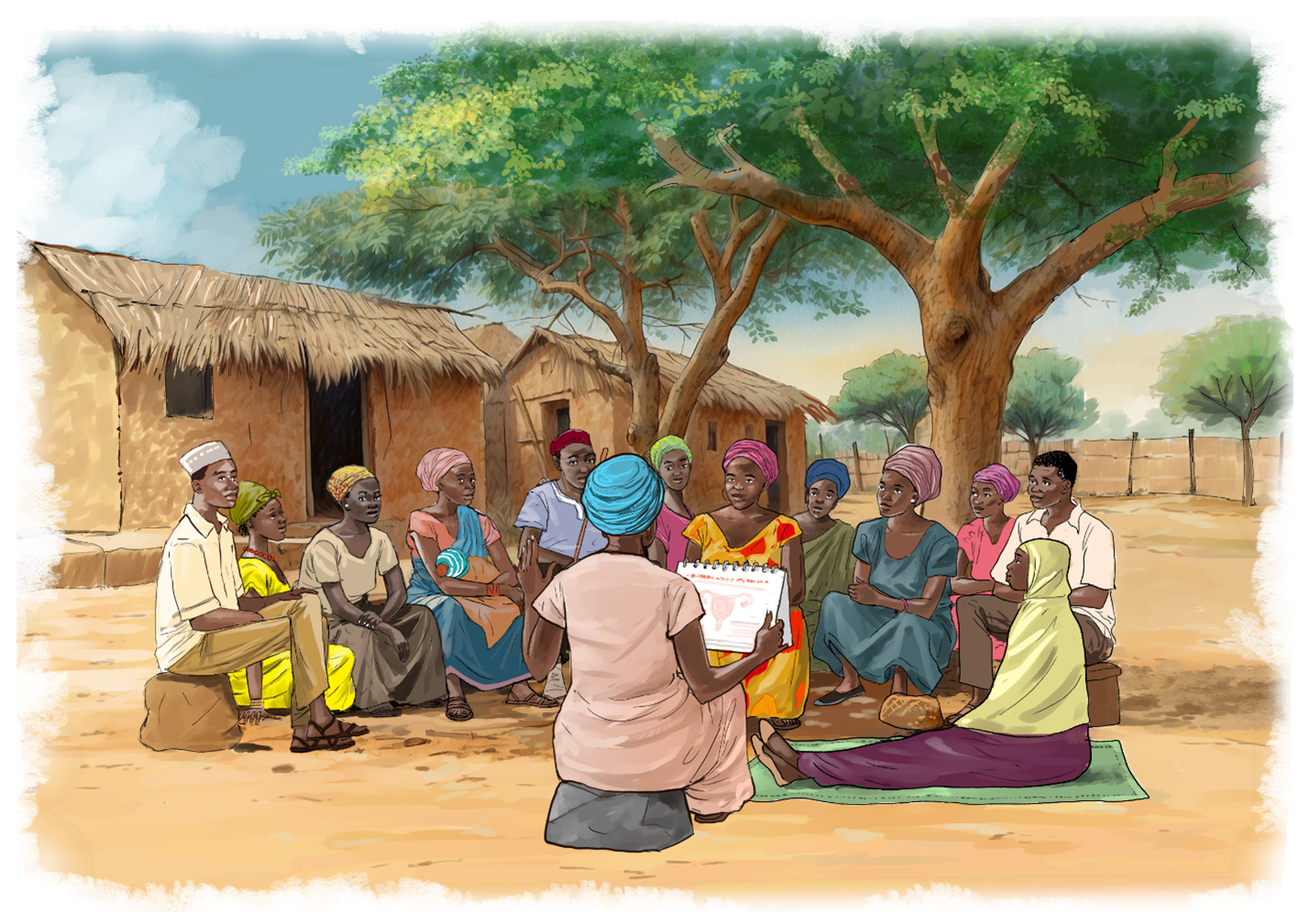Saving Lives Through Advocacy: Women Living with HIV are at the Forefront of Raising Awareness for Transformative Cervical Cancer Prevention in Tanzania.
Date:
Cervical cancer claims more lives among women in Tanzania than any other illness. Each year, approximately 10,241 women between the ages of 15 and 44 are diagnosed with cervical cancer, and 6,525 lose their lives as a consequence of delayed diagnosis. Studies suggest that women living with HIV are up to six times more likely to develop this cancer than those without the virus. UN Women Tanzania works with partners and local networks of women living with HIV on a project to promote awareness and advocate for cervical cancer prevention, screening and treatment among low-income women and those living with HIV.

In the Kagera region of Tanzania, Lili,* a 57-year-old mother of two living with HIV, experienced unexplained pain and discomfort for years. Like many women in her community, she had never heard of cervical cancer or its symptoms.
"I had all the symptoms but thought they were just part of my HIV condition. When they worsened, I self-medicated, thinking it was just an infection," she said.
For Lili, a project to promote cervical cancer screening implemented by UN Women and the Network of Women Living with HIV not only came at the right time but saved her life. The project, implemented in the Kagera and Mwanza regions of Tanzania, trained community volunteers, including women living with HIV, to raise awareness about cervical cancer effectively.
Lili learned about the cervical cancer screening initiative through one of the members of the network and was selected to participate in cervical cancer advocacy training. Filled with questions and doubts during the training, Lili requested to be screened.
After attending an advocacy training through the project, Lili underwent screening and treatment, " After I was diagnosed, I immediately received treatment. This made me realize that many women in my village might be facing similar challenges without even knowing it. I was motivated to spread the word so others wouldn't suffer as I did."
Following the training, the Network of Women Living with HIV launched community mobilization campaigns, using different methods to inform their communities about the early signs of cervical cancer, treatment, HPV vaccines, and the importance of regular screening.
“In just a few months, we were able to visit about 250 homes in five wards of Bukoba district, educating families on cervical cancer. We also worked with local radio stations and went to all public events making sure we reached as many women as we could in Kagera,” Lili shared.
The project specifically aims to raise awareness of women and young women living with HIV. This information is crucial for prevention, screening and treatment. Due to these advocacy efforts, over 1,000 women have now undergone cervical cancer screenings.
Speaking about the project's impact, Ms. Neema Kyamba, the coordinator of maternal and child health in the Kagera region, said that many women now have a deeper understanding of cervical cancer and have become more proactive about their health. This has led to an increase in the number of women seeking screening services, especially women and girls living with HIV.
Hali,* another beneficiary of the project echoed this sentiment, "Participating in this project has made me more health conscious. I now go for regular screenings and check-ups, setting an example for others in my community."
* Names have been changed to protect the privacy of the individual.